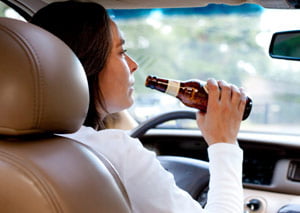 While drunk drivers who cause accidents are financially responsible for the damages they cause, victims may also be able to pursue claims against the bar, restaurant, nightclub or other establishment that served the drunk driver alcohol before he or she got behind the wheel.
While drunk drivers who cause accidents are financially responsible for the damages they cause, victims may also be able to pursue claims against the bar, restaurant, nightclub or other establishment that served the drunk driver alcohol before he or she got behind the wheel.
The Fort Worth car accident lawyers at Anderson & Cummings are committed to helping victims of drunk driving crashes recover compensation for the full cost of damages. We offer a free, no-obligation consultation to talk about your accident.
What is a Dram Shop Law?
Drunk driving accidents often cause serious, life-altering injuries. The cost to treat these injuries could very well be more than the amount of liability insurance a drunk driver carries.
However, dram shop laws may allow injured victims to pursue additional compensation from a restaurant or bar that served alcohol to an already intoxicated person who was later involved in a drunk driving accident.
When May a Dram Shop Claim be Pursued in Texas?
According to Texas law, if you were injured by a drunk driver, you may have a dram shop case if you can prove either:
- The bar or restaurant served the adult driver more alcohol after it was obvious the driver was already drunk.
- The bar or restaurant served alcohol to a minor child who then drove drunk.
Additionally, you must establish that the driver’s intoxication was a proximate cause of your injuries. This means the crash and your injuries would not have occurred without the driver being drunk.
What is Obvious Intoxication?
Bars and restaurants can be held liable for damages stemming from a drunk driving accident caused by a driver who was obviously intoxicated to the point that he or she presented a clear danger to self or others.
Proving obvious intoxication requires carefully reviewing the circumstances involved in the claim. Here are some examples of situations when someone may be considered obviously intoxicated:
- A patron at a bar smells of alcohol, slurs his speech or has glassy eyes before being served alcohol.
- A patron orders several drinks within one hour that would lead to obvious intoxication based on the amount of alcohol, type of alcohol and the patron’s stature. A person of short stature or slight build who orders several drinks in a short period of time is obviously drunk.
- A patron orders just one drink and quickly starts to act drunk.
If someone orders one drink and leaves and crashes into another car, it would be difficult to hold the bar liable because employees would not have been able to tell the driver was obviously intoxicated.
However, if the drunk driver is not of legal drinking age, the victim of a crash caused by this individual would not need to prove the driver was obviously intoxicated when he or she was served by a bar or restaurant. Serving a minor makes the establishment liable for damages he or she causes in a drunk driving accident.
Proving Proximate Cause
Simply proving a driver who caused a crash was drunk does not mean his or her drunkenness was the main cause of the accident. The accident could have been caused by other factors or other drivers.
Examples of times when drinking may be considered the proximate cause of an accident include accidents caused by:
- Driving over a median
- Tailgating
Contact us for Help with Your DUI Accident Claim
If you were injured in a drunk driving accident and believe that a bar or restaurant might have over-served the driver, the experienced personal injury lawyers at Anderson & Cummings may be able to help. Contact us today to schedule a free consultation to learn more about your rights.
We are here to help during this difficult time. Call (817) 920-9000 or fill out our Free Case Evaluation form.
